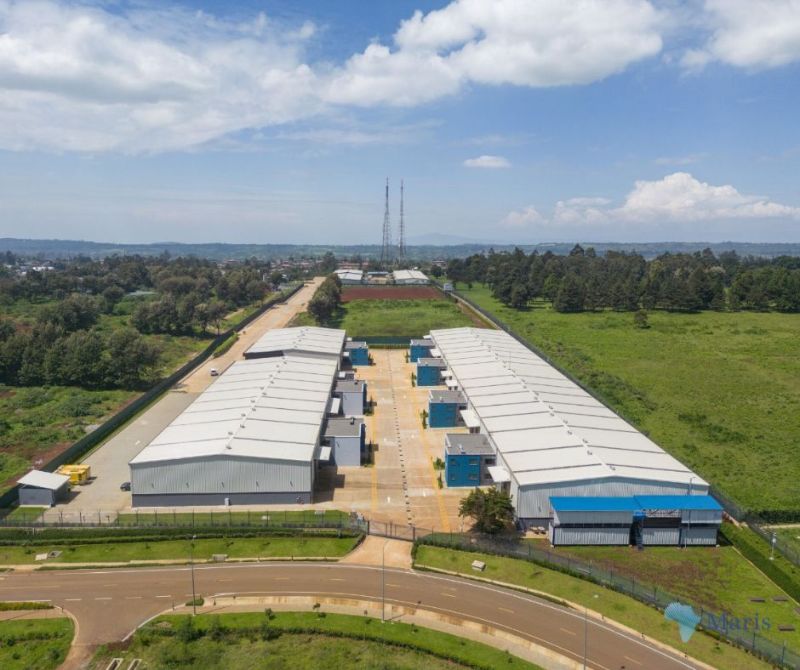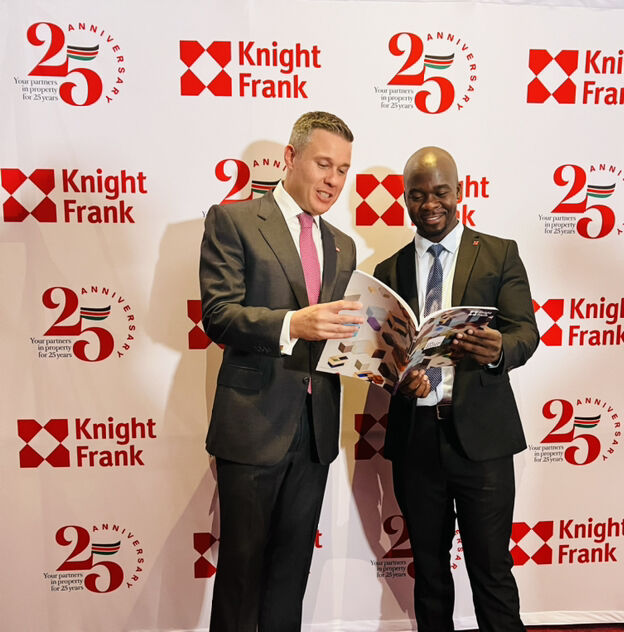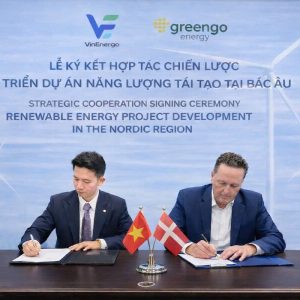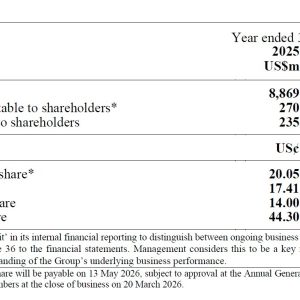
Knight Frank: Africa’s Warehousing Occupancy Hit 83% on the Back of Trade and Tech Surge
- Occupancy levels for modern warehouses surged to 83% in H1 2025.
- Africa’s online retail market is projected to exceed US$ 75 billion by 2025.
- Nigeria’s e-commerce market alone is valued at US$ 8.53 billion in 2025, with an expected CAGR of 11.8% through 2033.
Africa’s industrial and logistics market is witnessing accelerated growth, with occupancy levels for modern warehouses reaching 83% in H1 2025—up from 75% a year earlier, representing a 10.7% year-on-year increase.
According to the global property consultant Knight Frank’s Africa Industrial Market Dashboard (H1 2025), the sector is recording historic occupancy highs, driven by the rapid expansion of e-commerce, agro-industrial growth, and rising regional self-sufficiency.
 Boniface Abudho, Research Analyst at Knight Frank Africa, explains,“This surge reflects the growing maturity of Africa’s industrial real estate as a core investment asset class, while underscoring the persistent supply-demand imbalance for Grade A facilities, particularly across urban hubs and trade corridors”.
Boniface Abudho, Research Analyst at Knight Frank Africa, explains,“This surge reflects the growing maturity of Africa’s industrial real estate as a core investment asset class, while underscoring the persistent supply-demand imbalance for Grade A facilities, particularly across urban hubs and trade corridors”.
E-COMMERCE & AGRO-INDUSTRIALISATION BOOM
The Knight Frank report projects Africa’s online retail market to surpass US$ 75 billion by 2025, intensifying demand for logistics infrastructure, last-mile delivery, and climate-controlled storage facilities.
 Nigeria’s e-commerce market is estimated at US$ 8.53 billion in 2025, with an anticipated CAGR of 11.8% through 2033.
Nigeria’s e-commerce market is estimated at US$ 8.53 billion in 2025, with an anticipated CAGR of 11.8% through 2033.
Meanwhile, South Africa’s domestic e-commerce market, valued at US$ 35.23 billion in 2024, is forecast to more than double to US$ 74.79 billion by 2033.
 Elsewhere, according to Knight Frank, agriculture accounts for 32% of Africa’s GDP and provides livelihoods for over 65% of the population. Agro-processing is rapidly gaining traction,with the African Development Bank (AfDB)estimating that improved value addition could raise raw value capture by as much as 600% in sectors such as cotton-to-textile.
Elsewhere, according to Knight Frank, agriculture accounts for 32% of Africa’s GDP and provides livelihoods for over 65% of the population. Agro-processing is rapidly gaining traction,with the African Development Bank (AfDB)estimating that improved value addition could raise raw value capture by as much as 600% in sectors such as cotton-to-textile.
In Nigeria, the US$ 538 million Special Agro-Industrial Processing Zones (SAPZ) programme is expected to enhance agricultural productivity by over 60%, while significantly driving demand for cold storage and agro-logistics facilities.
 SUSTAINABILITY AND INTRA-AFRICAN TRADE
SUSTAINABILITY AND INTRA-AFRICAN TRADE
Knight Frank highlights that ESG compliance is shaping occupier choices, with Cold Solutions Kenya’s Tatu City facility becoming the first in Africa to achieve LEED Gold certification.
In South Africa, corporates such as Woolworths have invested nearly US$ 1 million in clean energy solutions for distribution centres, while Botswana saw the launch of locally assembled electric vehicles (EVs), signalling a pivot to clean-tech industrialisation.

Mark Dunford, CEO of Knight Frank Kenya, noted, “Sustainability is now a defining feature of new industrial developments. Occupiers are increasingly prioritizing ESG-compliant spaces that deliver operational efficiencies and lower energy consumption.
In response, developers are embedding green design principles into both speculative builds and bespoke, build-to-suit projects”.

The report also highlights that Nigeria’s Dangote Petroleum Refinery, the largest in Africa, is reshaping regional trade flows with a 650,000 barrels/day capacity and a new 1.6-million-barrel storage facility in Namibia.
Although Intra-African trade currently accounts for just 14.4% of exports, compared to 60% in Europe (UNCTAD), infrastructure upgrades and policy reforms under the AfCFTA are expected to help close this gap.

REGIONAL PERFORMANCE
- South Africa, Egypt, and Nigeria remain industrial powerhouses. South Africa’s prime rentals average US$5.5 psm/month, with yields stabilising around 8.25%.
- Kenya recorded some of the highest yields in the region at 9.5%, with Nairobi strengthening its role as a regional logistics hub.
- Egypt saw occupancy in 6th of October City reach 95%, backed by a US$120 million pharmaceutical hub investment.
- Zambia’s GDP grew 4.5% in Q1 2025, fuelling demand in Lusaka’s logistics corridors, with industrial yields among Africa’s highest at 12%.
- Uganda posted robust yields of 13%, supported by policy reforms including a new three-year corporate tax exemption for SMEs.








